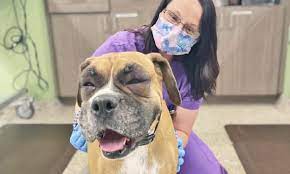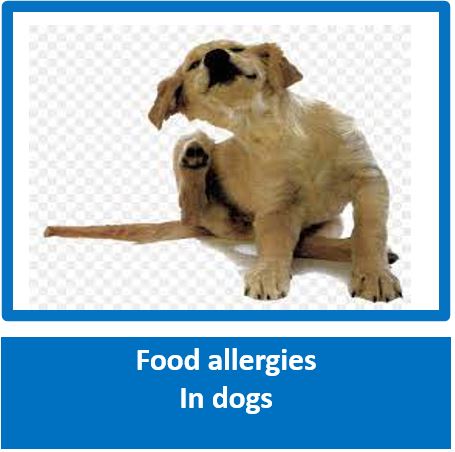|
Whether you are looking to determine if your dog is allergic or intolerant to any foods or substances, or whether you want to find out the breed make-up of your cross breed, do have a look at Muttmix first of all. They also have a Genetic Age Test which will determine the biological age of your dog and gives you insight into the predicted longevity from a cellular level. www.muttmix.co.za
|
Acute Allergic Reaction - Anaphylaxis
Guest Contributor Susan Holdsworth - Facebook Link for Books & Courses
Guest Contributor Susan Holdsworth - Facebook Link for Books & Courses

If untreated, Acute Allergic Reaction (Anaphylaxis) will result in shock, respiratory and/or cardiac failure and even death.
Examples of possible causes of anaphylactic reaction are stinging insects (bees and wasps), antibiotics, vaccines, medication and foods.
The most common incidence is bee sting. Comb the fur to remove any bees caught in the hair. Locate the stinger and remove using a blade. Do not try to remove the stinger by using your fingers as you may squeeze more of the toxins into the skin and worsen the reaction.
If the dog shows only a local reaction, treat the swelling with a paste made of baking soda and water. Cool the area with a pack of frozen peas or an ice pack to reduce the pain. Calamine lotion can also be used to sooth irritated skin.
If the dog has eaten bees and has been stung in the mouth, this could lead to swelling of the pharynx (inner mouth) inability to breathe and death by suffocation. If you cannot reach a veterinarian with the animal, confirm telephonically which histamine tablets / dosage the vet recommends.
If your animal exhibits signs and symptoms of a severe anaphylactic reaction – you must contact your veterinarian and transport immediately!
Examples of possible causes of anaphylactic reaction are stinging insects (bees and wasps), antibiotics, vaccines, medication and foods.
- The initial signs of a reaction may include the following: the gums and inner eyelid (conjunctiva) may be pale, limbs will feel cold, swelling of the muzzle and lips
- There could possibly be diarrhoea, vomiting, shock, excessive drooling, the heart rate may be very fast but the pulse will be weak, difficulty in breathing, seizures, coma and eventually death if treatment is not administered.
The most common incidence is bee sting. Comb the fur to remove any bees caught in the hair. Locate the stinger and remove using a blade. Do not try to remove the stinger by using your fingers as you may squeeze more of the toxins into the skin and worsen the reaction.
If the dog shows only a local reaction, treat the swelling with a paste made of baking soda and water. Cool the area with a pack of frozen peas or an ice pack to reduce the pain. Calamine lotion can also be used to sooth irritated skin.
If the dog has eaten bees and has been stung in the mouth, this could lead to swelling of the pharynx (inner mouth) inability to breathe and death by suffocation. If you cannot reach a veterinarian with the animal, confirm telephonically which histamine tablets / dosage the vet recommends.
If your animal exhibits signs and symptoms of a severe anaphylactic reaction – you must contact your veterinarian and transport immediately!





